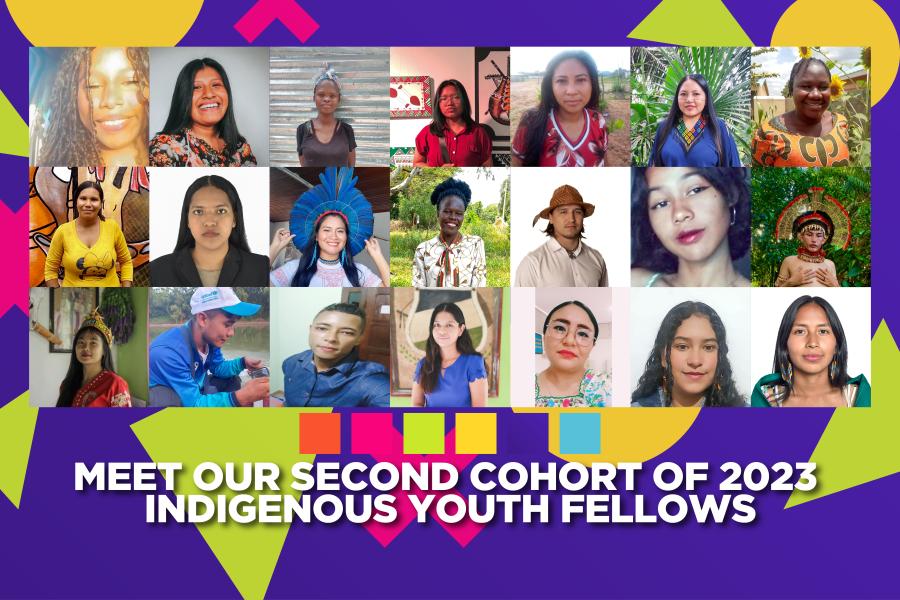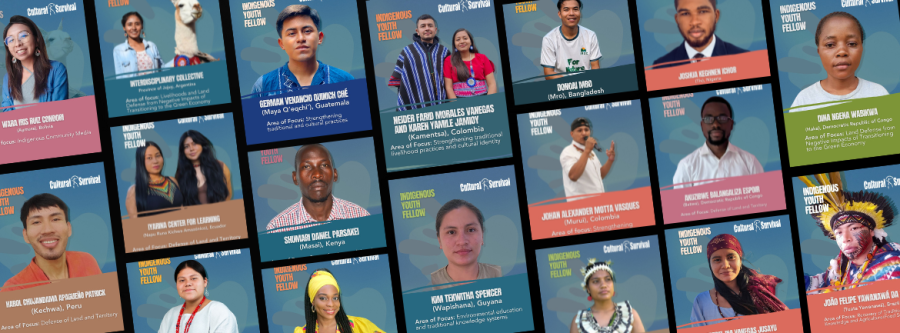
The Keepers of the Earth Fund (KOEF) is proud to announce our 2024 partnerships with Indigenous communities. At Cultural Survival, we value cultivating long-term relationships with our partners by supporting Indigenous projects related to community empowerment for the defense of land and autonomy; strengthening of Indigenous languages, cultures, and knowledge systems; conservation of Indigenous land and livelihoods in the face of climate change; and resistance to negative impacts from mining for the “green” energy transition.
The Keepers of the Earth Fund is an Indigenous-led fund at Cultural Survival designed to strengthen Indigenous Peoples' advocacy and community development projects globally. Since 2017, we have supported 392 projects in 40 countries through small grants and a wrap-around approach totaling $2,219,369. Grants go directly to Indigenous communities, collectives, organizations, and traditional governments to support projects designed by them and in accordance with their Indigenous values. Predicated on the United Nations Declaration on the Rights of Indigenous Peoples, Cultural Survival uses a rights-based approach in our grantmaking strategies to support grassroots Indigenous solutions through the equitable distribution of resources to Indigenous communities.
In 2024, in our eighth year of operations, we supported 83 Indigenous projects and collectives for a total amount of $614,222. The funds were sent directly to Indigenous communities, collectives, and grassroots organizations in 25 countries.
The following list summarizes the projects that KOEF is supporting in 2024. The projects vary but are all under the theme of the unique relationship that each Peoples have with the land to obtain their livelihood and also protect it from the threats of climate change. The projects focus on respectful and diverse planting, prevention of disasters such as fires and landslides, and the fight against desertification and are guided by Indigenous values, and led by the same communities that benefit from their results.
Indigenous Lands and Livelihoods in the Face of Climate Change
Bigu Thami Bhume Samaj, Thangmi (Nepal)
Bigu Thami Bhume Samaj (Thangmi Community Welfare Association), founded in 2017, is exclusively composed of individuals belonging to the Thangmi community, an Indigenous ethnic group native to Nepal with deep cultural roots in the Himalayan region. Supported by a KOEF grant, the project aims to mitigate landslide risks in the Dolakha district of Nepal. It will implement bioengineering techniques combining landslide prevention with income generation for the Thangmi community. This includes planting suitable grasses and trees using terracing, soil stabilization, and vegetative barriers. The goals are to improve landscape resistance to landslides, stabilize slopes, and reduce soil erosion.
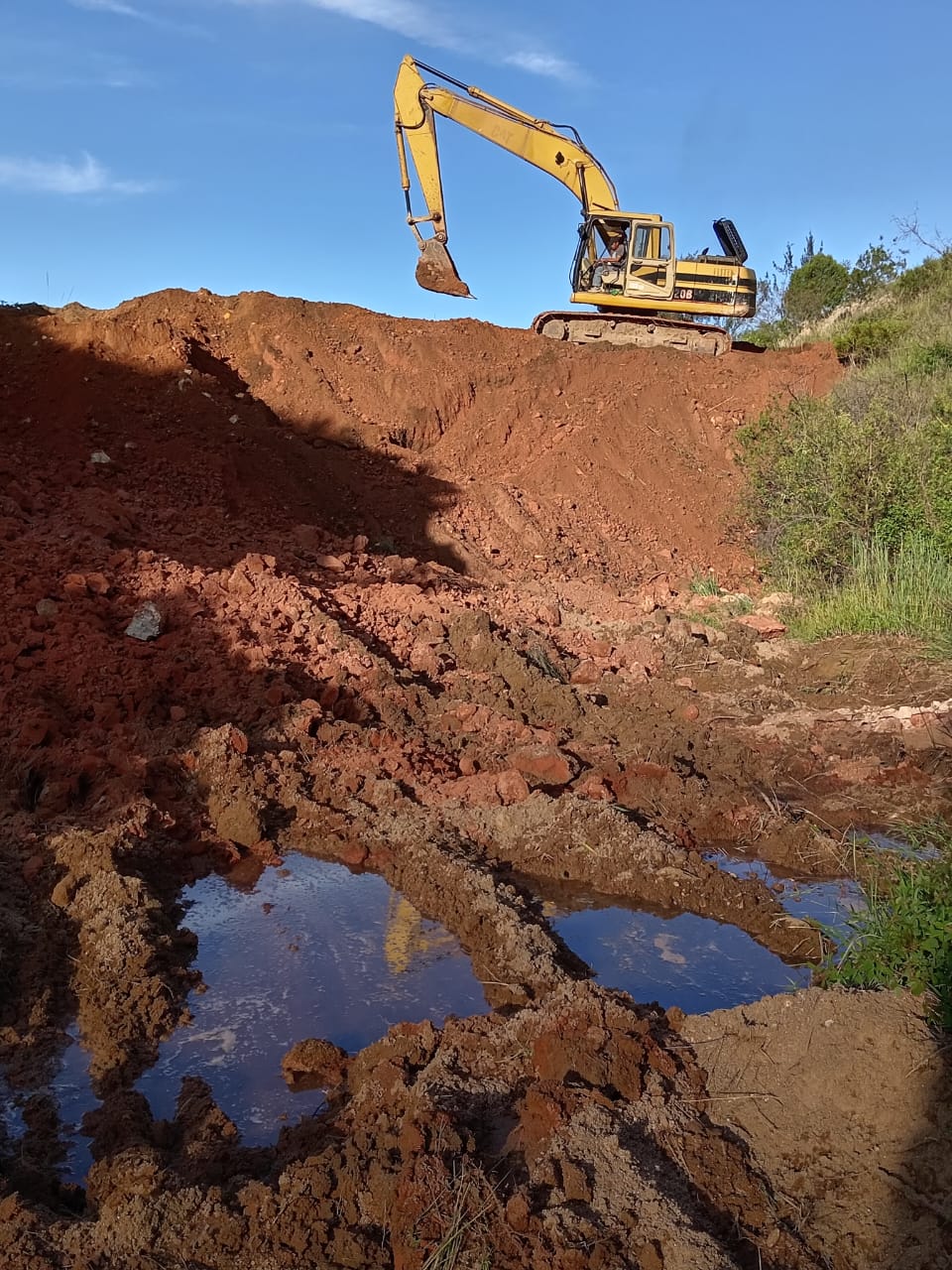
Comisariado de Bienes Comunales de San Mateo Etlatongo, Ñuu Savi (Mexico)
The desertification and deforestation of the hills in San Mateo Etlatongo (Ñuu Savi), Oaxaca has caused deep erosion and fragile ravines. Over the years, community members have created a system of contour ditches with the intention of retaining water and restoring soils; however, this has been a limited solution. As a continuation of this objective, in 2024, this Indigenous municipality will work on creating borders in a systematic and structured manner on the hills that have been identified as the most affected by soil degradation and drought. The work is coordinated by the traditional authorities of the municipality.
Pariana Asociation, Matsingenka (Peru)
In the Manu National Park, where some Indigenous Peoples live in isolation, is the Matsingenka People. The Pariana Association emerged as part of a community that began to be colonized less than 100 years ago and currently inhabit a fraction of the land that they previously owned. The Matsingenka are reforesting this land, which in the past years was inhabited by settlers who implemented pastures. This year, with the support of KOEF, they continue the work of reforestation and sustainable use with fruit trees that provide food for the community and also for wild animals.
Koibatek Ogiek Women and Youth Network, Ogiek (Kenya)
The Koibatek Ogiek Women and Youth Network was founded in December 2021 and is composed of the Ogiek people, who are deeply rooted in their cultural heritage and ancestral connections. Their services cater to nearly 2,000 individuals across diverse demographics, including men, women, youth, Elders, and children. Supported by a KOEF grant, their project aims to serve the Ogiek community, specifically in the Koibatek-Visoi, Kamarar, and Momberes areas in Baringo County. The project will include farm demonstrations, setting up kitchen gardens, demonstrating composting methods, cultivating Indigenous plants for food use, and providing information on environmental policy.
Samburu Women Trust, Samburu, Turkana, Maasai (Kenya)
Founded in 2006, the Samburu Women Trust is composed of 1,000 Indigenous groups and individual women from Isiolo County, northern Kenya. Supported by a KOEF grant, their project aims to increase the population of indigenous medicinal plants by establishing seed banks and nurseries while strengthening Indigenous women's climate change preparedness.
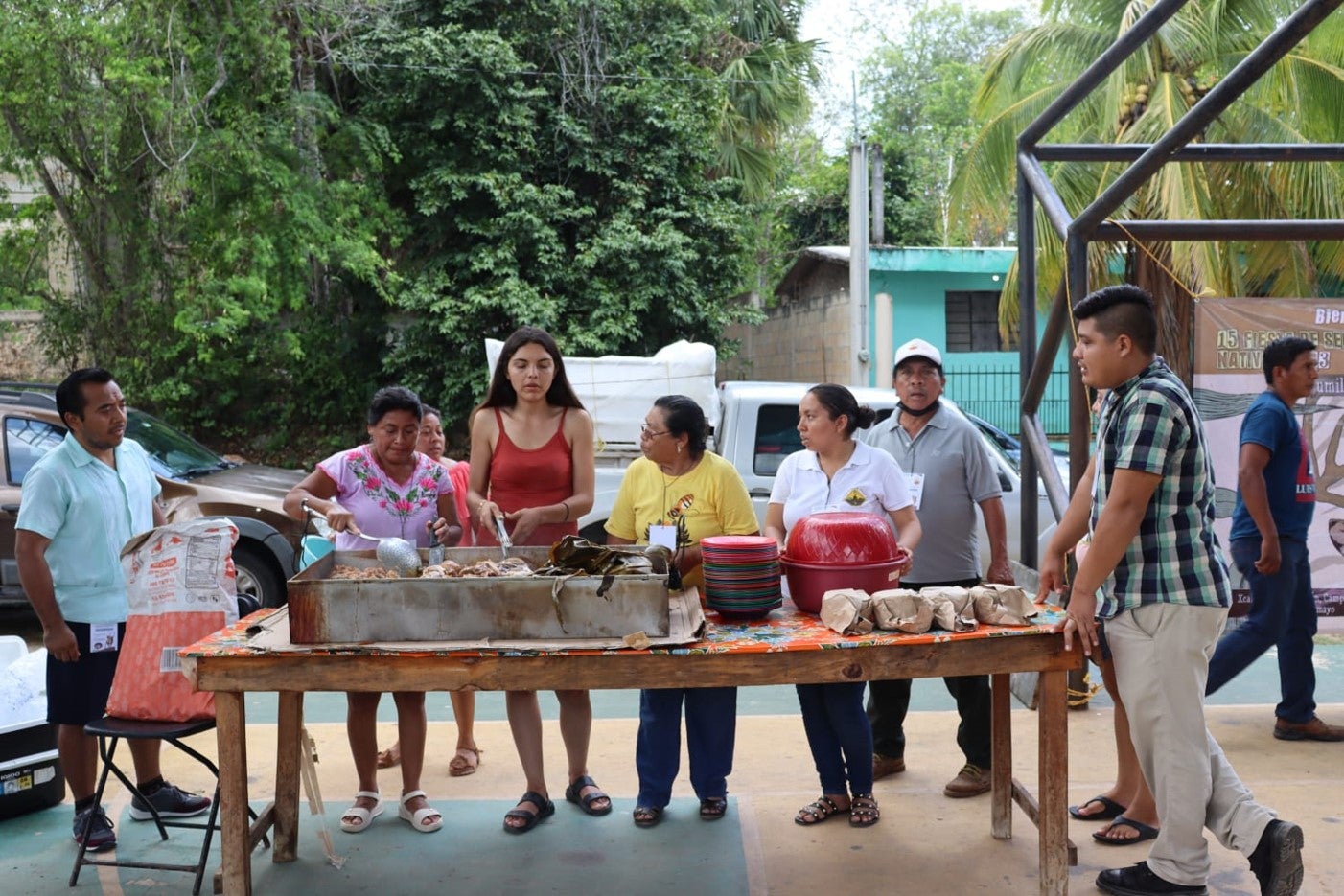
Milpa Colectiva KM50, Maya (Mexico)
After attending a seed festival, the Maya people who form the Milpa Collective were inspired to organize, meet, and do activities around the cornfield. Last year, they were supported by KOEF to carry out their first Native Seed Festival, from which a broader process of seed conservation, recovery of the milpa, intergenerational exchange of knowledge, and recovery of the patch pakꞌal technique for growing vegetables. This year they continue the work, now with a larger cornfield, in a process guided by older campesinos, with respect for the rhythms of time and ceremonies necessary for the process. They will organize workshops and exchanges to share knowledge, visits to communities to acquire seeds, and strengthen with other Maya farmers.
Yip Yatel Tseltal Antsetic, Tseltal (Mexico)
A group of Tseltal women from the Guaquitepec ejido, Chiapas consolidated in 2014 to defend and demand their rights due to the violence in their community. The mission of this organization of Tzeltal and campesino women is local empowerment with emphasis on building relationships of equality, dignity, and autonomy. Concerned about the deterioration of the land and the poor quality of food produced in monoculture with agrochemicals, they planned this project for the conservation and sustainable management of the soil in shade coffee plantations with agroecological practices, such as the use of organic fertilizers and natural insecticides. In their ejido in the municipality of Chilón, they are going to install a fruit tree nursery, plant shade coffee and legumes, and organize workshops on fertilizers, bio-insecticides,
conservation, and sustainable soil management.
Sakil K’inal Collective, Tseltal (Mexico)
In the municipality of San Juan Cancuc, Chiapas, the Sakil K'inal Youth Collective works to preserve the knowledge of traditional Tseltal Mayan agriculture. The population in El Pozo has been growing, which demands organized and conscious work with increasingly smaller and impoverished plots of land. This project consists of reconditioning the family garden as a strategy to contribute to the food self-sufficiency of families and combat the effects of climate change in their community. Work will be carried out to improve the plots, in addition to training in soil conservation techniques, natural pest control, and preparation of natural fertilizers from materials available in the community. Finally, there will be exchanges of knowledge whose information will be systematized in manuals to share.
Ts’unujob ‘otanil Antsetik, Tseltal (México)
In Las Manzanas, Tenejapa, the women's collective Ts'unujob 'otanil Antsetik (Women Sowers from the Heart) works to strengthen Traditional Knowledge that helps preserve and care for the earth through sustainable practices and systems. The group has carried out training activities in agroecological practices and seed exchanges since 2022, during which time they have witnessed declining harvests due to climate change that are not sufficient to meet their annual needs. This year, their work emphasizes the development and rescue of knowledge about the cultivation of healthy foods and the conservation of native tree species that have been lost due to the continuous felling of forests. The main activities are the creation of a community nursery of fruit, timber, medicinal, and endemic trees, as well as training on food sovereignty.
Nvn-nes-‘a Land Trust, Siletz (United States)
Nvn-nes-‘a Land Trust was founded in 2023 and is led by four Siletz Tribal members. Their goal is to return access, stewardship, and ownership of their homelands back to Tribal members, addressing the most significant needs of their community and land. Supported by KOEF grants, their project aims to organize a community event to build a structure at one of three traditional fishing sites. The structure will include a wood stove and provide a place for Elders and others to stay warm while participating in the community's duty to meet the salmon. This initiative will facilitate intergenerational knowledge sharing and the continuation of a longstanding cultural practice, and continues the community's tradition of collaborating to build smokehouses, summer camps, fishing platforms, and other structures to support fishing.
Yomol A’tel, Tseltal (Mexico)
The coffee producing families in the communities of Chilon, Sitala, Yajalon, Ocosingo, and Pantelho, Chiapas are organized in two cooperatives that unite in the Yomol A'tel collective with the purpose of strengthening their economy and continuing to train in production. They have identified that the poverty conditions of some of the member families limit the improvement of drying spaces, which affects the quality of their product. This year they will focus on building solar coffee dryers with plastic and regional wood, which will allow them to dry the product efficiently in small spaces. This drying model is also an adaptation to changes in rainfall due to climate change.
Pueblos Indígenas Unidos de la Montaña Flor viva Cooperative Group, Ñuu savi (Mexico)
The cooperative Flor viva, created as a community organization, gradually took over the steps of the coffee production chain from biodiversity conservation and productive diversification to payment to the land. This year, with the support of KOEF, they will strengthen their production by establishing a machinery module for use by all member families. This will be complemented with training on good practices in nurseries, labeling, packaging, product distribution, good dry processing practices, and quality coffee production from an agroecological model.
Nantes Agri Hills, Khoisan (South Africa)
Nantes Agri Hills is an organization founded in 2017 that serves communities and local farmers, providing information on successfully growing rooibos. Supported by a KOEF grant, their project aims to prepare and establish a 10-hectare plot dedicated to skill training, capacity building, and job creation targeting the Nieuwoudtville Khoisan communities and surrounding areas.
Collective in defense of the land and territory of Monte del Pitayal, Zapotec (Mexico)
The community of Puente Madera in the Isthmus of Tehuantepec has been affected by climate change, which has altered the production of their staple foods. In 2023, the community suffered a critical drought in the region, which caused some farmers to lose part of their seeds saved for planting. With support from KOEF, the collective has implemented a seed bank where seeds will be conserved and loaned. In addition, a community demonstration garden is being created and a deep well for irrigation is being built with intergenerational participation.
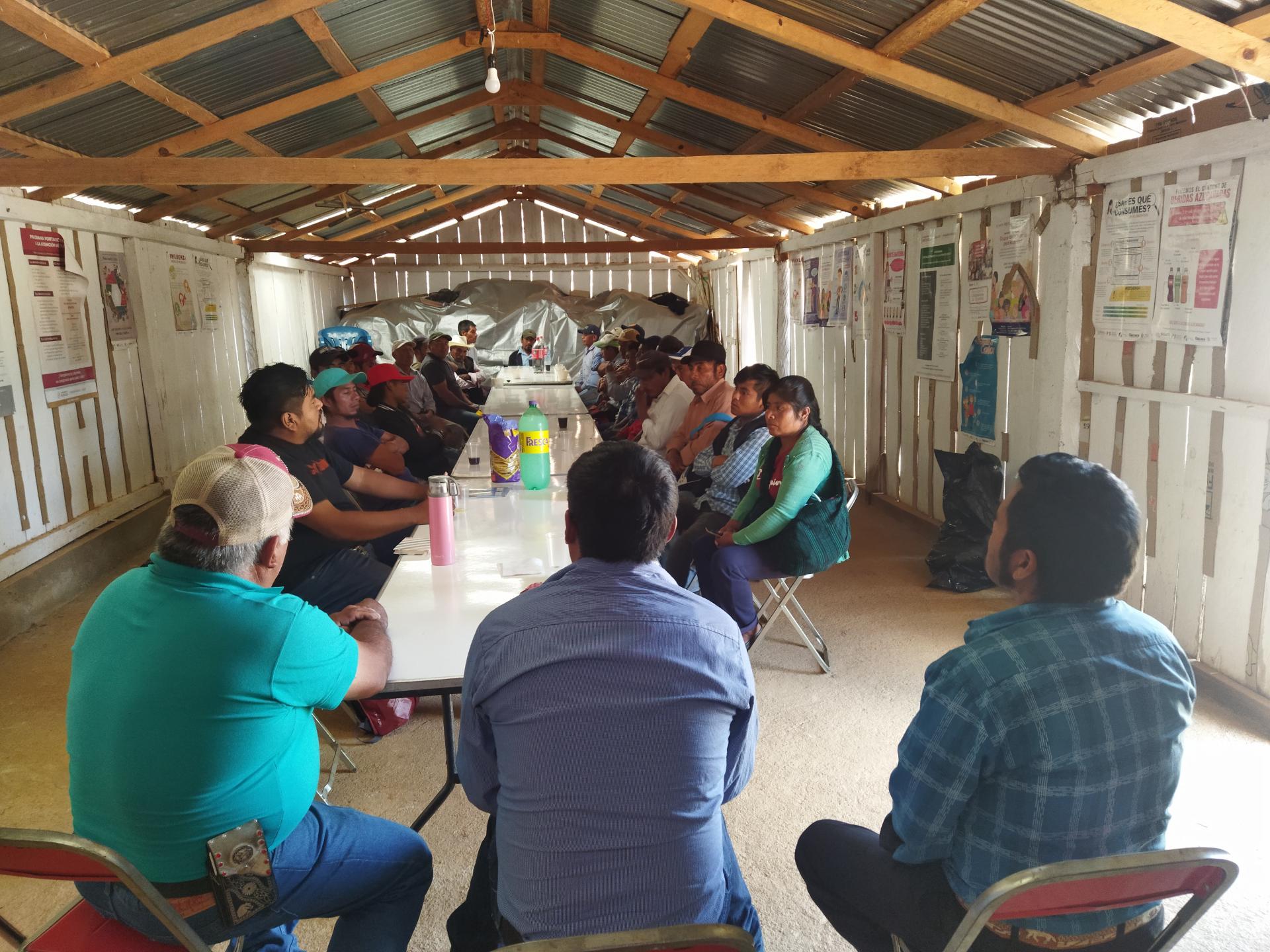
Núcleo Rural Cerro León, Ñuu savi (Mexico)
The Cerro Leon community in Ñuu Savi, Mixteca is located in highlands with a cold and rainy climate. They needed a space to store the crops they cultivate and protect them from humidity so that they last longer. With support from KOEF, in 2024 they will begin the construction of the community house for the benefit of all its inhabitants. The community will contribute its tequio (collective community work).
Cascada de Niebla Community Ecotourism, Chinantec (Mexico)
The community of Santiago Comaltepec in the northern mountains of Oaxaca manages three community companies, the result of decades of community organization to defend its resources. One of these companies is Community Ecotourism, which seeks to obtain income from controlled tourism and the sustainable use of their forest. This year, with the support of KOEF, the community is strengthening Community Ecotourism by creating promotional materials to attract visitors.
Indigenous Campesino Community of Totorabamba, Quechua (Peru)
The community of Totorabamba in Huamanga has a private conservation area that allows the protection of relict forests with one of the most threatened ecosystems in the world. More than 20 medicinal plants have been identified within these native forests, which represent a great opportunity for domestic and commercial use. A project supported by KOEF seeks to promote the conservation, recovery, and use of medicinal and aromatic plants for domestic and commercial purposes. Training and knowledge dialogues will be carried out on a production plan with technical assistance and promotion of the consumption of these plants.
